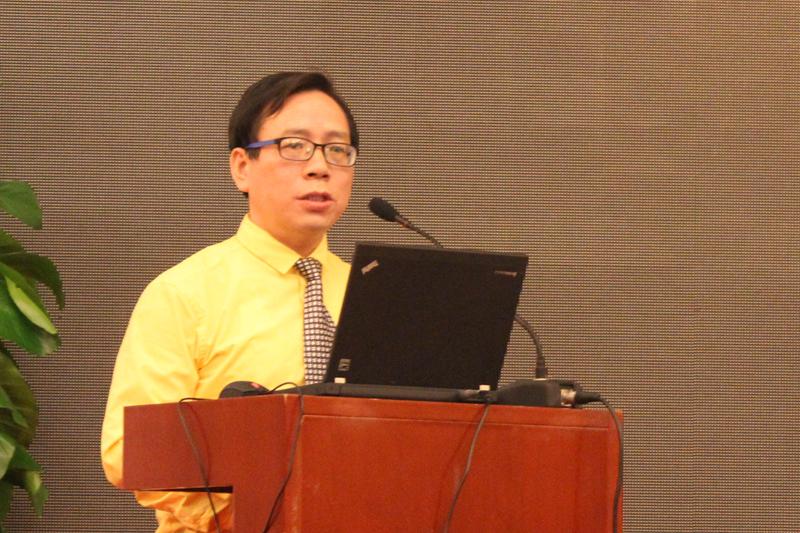Scholar Shi Hengtan, a researcher at the Chinese Academy of Social Sciences, gave his speech on "Zhang Xingyao's Conception and Practice of Sinicization of Christianity" in an international symposium called "The Road of Sinicization of Christianity" held in Beijing from Nov. 21 to 22. He believes that the class "reading the Analects and the Bible side by side" he is holding now is inheriting the knowledge of our predecessors and practicing the Sinicization of Christianity.
Shi Hengtan led a class of 14 people studying the Analects and the Bible side by side in Beijing in 2012. Students read the text in the Analects and Shi quotes and explains a verse from the Bible which has similar meaning to the text. He did this to help Christians learn about traditional Chinese culture.
Zhang Xingyao, born in 1633 (Qing Dynasty), studied the Analects and Buddhism when he was young. He was baptized in 1678. He wrote more than ten books about Confucianism and Christianity including Tian Ru Tong Yi Kao.
Zhang believed that Confucianism and Catholicism were a family while Confucianism had omissions and Catholicism was perfect.
The book Tian Jiao He Ru written by Zhang collects the verses in Confucianism which is in accordance with Catholicism. Zhang cited the notes of Chinese sages, interpreted the verses further then reinterpreted them according to his opinions also with reference to other foreign missionary's points.
The book Tian Jiao Bu Ru is used to supplement the omissions in Confucianism with Catholicism. Zhang taught that Confucius is not God who could teach others but couldn't dominate the world. Confucius lacks the real moral force and Confucians have difficulty in practicing their belief. Besides, Confucian can't explain death or life, ghosts or gods clearly and doesn't know the heaven or the hell which Catholicism can explain.
The book Tian Jiao Chao Ru tells that "Confucianism transcends Catholicism in some places" through contrasting Catholicism with Confucianism, which touches the core of the belief which is salvation in Catholicism.
Shi believes that Confucianism is the main interlocutor of Sinicization of Christianity on the cultural level and it is possible to reinterpret Confucianism on the basis of Christianity.












